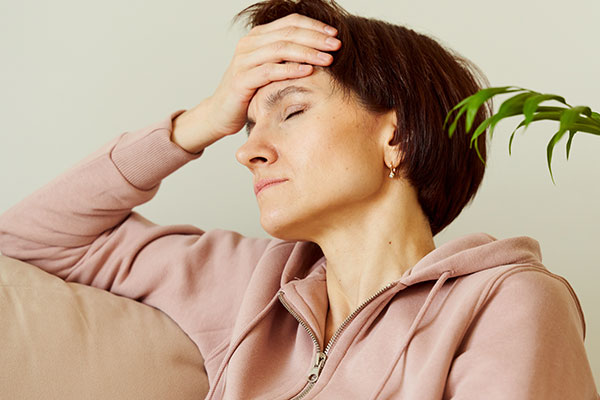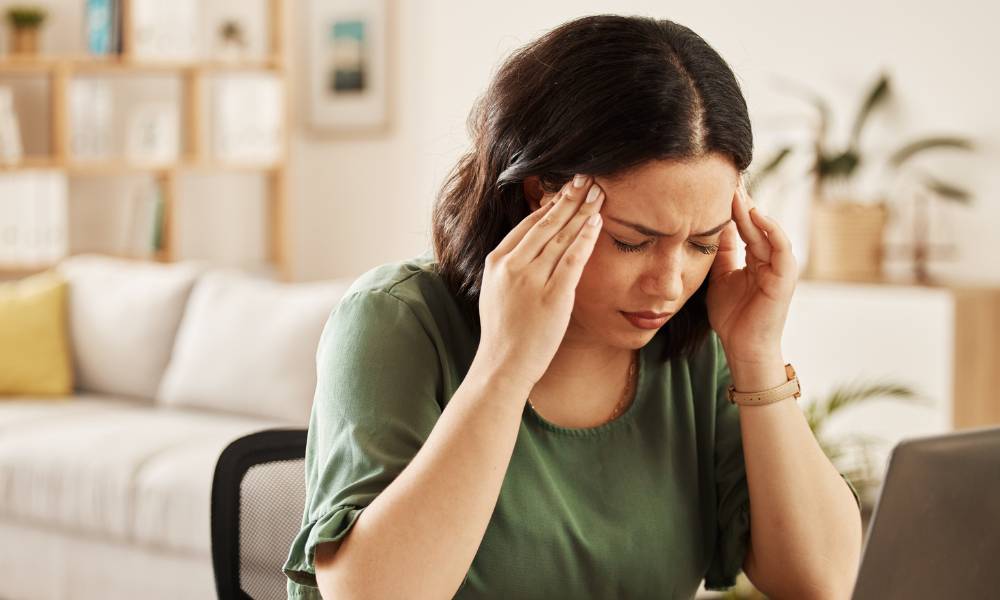Hormonal headaches affect many women throughout their lives, making it important to understand their causes and find effective solutions. These headaches often appear during major hormonal shifts and can impact daily activities.
Understanding hormonal headaches
Hormonal headaches typically occur due to changes in estrogen and progesterone levels in the body. These changes happen during menstrual cycles, pregnancy, or menopause. The pain usually starts as a dull ache and can develop into throbbing discomfort, often affecting one side of the head.
Common triggers
- Menstrual cycle changes
- Stress and lack of sleep
- Dehydration
- Skipping meals
- Environmental factors like bright lights
- Changes in weather
- Strong smells
Women’s health experts recommend tracking these triggers to understand your pattern of headaches better and manage them effectively.

Signs and symptoms
- Sensitivity to light and sound
- Nausea or dizziness
- Fatigue
- Neck stiffness
- Mood changes
Natural solutions
Diet changes can help reduce hormonal headaches
- Eating regular, balanced meals
- Staying hydrated
- Limiting caffeine intake
- Including magnesium-rich foods
- Avoiding processed foods
Women’s health improvements often start with making simple lifestyle adjustments that support hormonal balance.
Professional support
When to seek medical help
- Headaches become severe
- Regular activities become difficult
- Pain medications stop working
- New symptoms appear
- Headaches increase in frequency
Preventive measures
Daily practices that help prevent hormonal headaches
- Using a headache diary
- Practicing gentle stretching
- Taking regular breaks
- Creating a calm environment
- Maintaining regular meal times
- Getting enough sunlight
Alternative therapies
Several complementary approaches can help
- Acupuncture
- Massage therapy
- Aromatherapy
- Yoga
- Meditation
- Deep breathing exercises
Sleep and rest
Quality sleep plays a crucial role
- Creating a dark, quiet sleeping environment
- Following a regular sleep schedule
- Avoiding screens before bedtime
- Using comfortable pillows
- Practicing relaxation before sleep
- Keeping the bedroom cool
Exercise guidelines
Physical activity can help manage hormonal headaches
- Starting with gentle exercises
- Gradually increasing intensity
- Avoiding sudden movements
- Staying consistent with routine
- Choosing low-impact activities
- Exercising at regular times
Stress management
Effective stress reduction techniques
- Regular relaxation practices
- Time management
- Setting realistic goals
- Taking regular breaks
- Maintaining social connections
- Engaging in enjoyable activities
Environmental factors
Creating a headache-friendly environment
- Adjusting lighting
- Maintaining good air quality
- Using air purifiers
- Avoiding strong perfumes
- Keeping noise levels low
- Having a dedicated rest space
Managing hormonal headaches requires a combination of understanding their triggers and implementing appropriate solutions. Making mindful lifestyle choices and staying aware of your body’s signals, you can reduce the frequency and intensity of these headaches. Regular attention to Womens Health needs helps maintain  and reduces the impact of hormonal headaches on daily life. With consistent care and the right approach, most women can find relief and maintain their active lifestyles while managing hormonal headaches effectively.
and reduces the impact of hormonal headaches on daily life. With consistent care and the right approach, most women can find relief and maintain their active lifestyles while managing hormonal headaches effectively.






